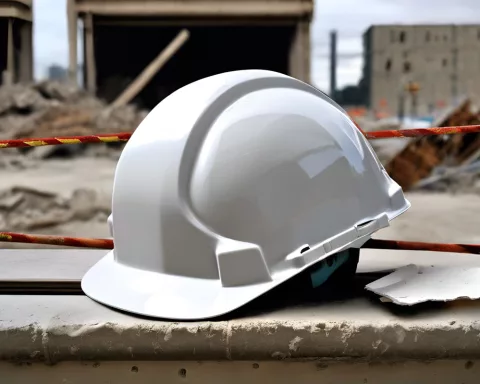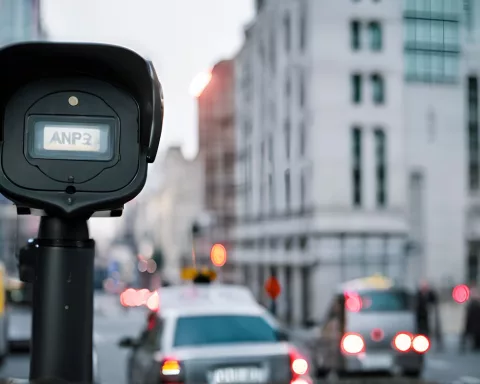South Africa’s broadcasting system is undergoing a radical transformation, as the Broadcasting Bill B32-2023 proposes to update and regulate the industry for the digital era. The proposed Bill includes guidelines for transparent and ethical governance of the South African Broadcasting Corporation (SABC) SOC Ltd, reflecting a more inclusive and forward-looking approach. The public has until January 16, 2023, to provide feedback on the Bill, emphasizing democratic participation in shaping South Africa’s digital future. The revision of the SABC SOC Ltd Bill is a commendable leap forward to spearhead the global digital revolution while ensuring accessibility for all South Africans.
What is the Broadcasting Bill B32-2023 in South Africa?
The Broadcasting Bill B32-2023 in South Africa is a proposed overhaul of the South African Broadcasting Corporation (SABC) SOC Ltd Bill. It aims to update the broadcasting system for the digital era, introducing regulatory frameworks, and guidelines for the SABC SOC Ltd’s governance. The proposed Bill also reflects a readiness to embrace a more inclusive and forward-looking approach. The public has until January 16, 2023, to provide feedback on the Bill, emphasizing the democratic process’s importance.
Policies and Proposals for a Digitally Progressive Broadcasting Sector
South Africa’s broadcasting landscape is about to undergo a radical transformation. This development is due to the Portfolio Committee on Communications and Digital Technologies’ decision to review and overhaul the South African Broadcasting Corporation (SABC) SOC Ltd Bill. This move is an effort to bring current systems up to date, paving the path for a digital era defined by dynamic and innovative communication. The public has been given more time to provide feedback on this groundbreaking Broadcasting Bill, signifying a step towards digital transformation.
The Broadcasting Bill [B32-2023] is loaded with noteworthy elements that deserve our attention. A standout feature is the proposed abandonment of the Broadcasting Act of 1999. This noteworthy move conveys the swift development of the digital age. Reflecting back, the Broadcasting Act of 1999, although forward-thinking for its time, was established during the early stages of the internet. It did not anticipate the sweeping digital transformation we have witnessed over the previous decade.
The proposed Bill also introduces regulatory frameworks for the ongoing operation of the SABC SOC Ltd. It establishes guidelines for its governance, ensuring operations are carried out transparently and ethically, thereby safeguarding the democratic principles it embodies. The initiative implicitly highlights the need for a more expansive, digitally-focused structure capable of adjusting to the continuous evolution of technology.
Progressing towards a Digitally Inclusive Future
In line with the vision of a digitally inclusive South Africa, the Bill proposes certain amendments to the Independent Communications Authority of South Africa Act of 2000 and the Electronic Communications Act of 2005. These Acts have played a crucial role in South Africa’s communication sector regulation and are now set to be reassessed in light of the digital age. The proposed changes to these Acts reflect a readiness to embrace a more inclusive and forward-looking approach.
The Committee’s dedication to democratic processes is demonstrated by its invitation to public commentary. The extension of the deadline for written feedback to 16 January 2023 provides a larger window for individuals and stakeholder organizations to contribute to the future of digital communications in South Africa. This move serves as a reminder of everyone’s right to express their views and the importance of every voice in a democratic society.
A version of the Bill is available from Ms. Hajiera Salie. All interested parties are encouraged to submit their written comments and also express their interest in presenting their views verbally to the committee. Interested individuals can contact the Portfolio Committee on Communications and Digital Technologies for further queries or submit their suggestions through a Google form, another step towards the digitally-oriented approach.
Recognizing the Leadership & Encouraging Active Participation
Mr. Boyce Maneli, the Chairperson of the Portfolio Committee on Communications and Digital Technologies, has played a pivotal role in this Bill’s formulation and execution. His leadership and unwavering commitment to digital transformation are a testament to the Committee’s dedication to their mission.
The media, which forms an essential part of the communication landscape, is urged to engage with the Committee. Media inquiries or interview requests with the Chairperson can be directed to the media officer, Mr. Justice Molafo.
Embracing the Digital Age & Envisioning a Digital Future
In an era dominated by digital mediums for communication and information dissemination, the revision of the SABC SOC Ltd Bill is a commendable leap forward. It exhibits explicit acknowledgement of the internet’s transformative potential and the determination to utilize it for the advantage of all South Africans. This Bill ensures that South Africa’s broadcasting sector does not trail behind in the global digital revolution, but rather, spearheads it by innovating and adjusting to the digital age’s demands.
In a larger context, the review process of this Bill exemplifies the iterative nature of law and policy development. Laws are not stationary; they evolve to cater to society’s changing dynamics. This is particularly true in the realms heavily influenced by technology, where the rate of change is often rapid and unrelenting. The readiness to revisit and modify existing legislation, such as the Broadcasting Act of 1999, is indicative of the government’s awareness of this dynamism.
The revision of the SABC SOC Ltd Bill is not just about modernizing the broadcasting sector. It is about arming South Africa for a digital future and making sure that the opportunities it brings are accessible to all. The involvement of the public in this process is crucial. It is an essential reminder that the democratic process is still very much vivid, and every individual has a significant role in shaping the future.
What is the deadline for providing feedback on the Broadcasting Bill B32-2023?
The public has until January 16, 2023, to provide feedback on the Broadcasting Bill B32-2023, emphasizing the importance of democratic participation in shaping South Africa’s digital future.
What is the purpose of the Broadcasting Bill B32-2023?
The Broadcasting Bill B32-2023 proposes to update and regulate South Africa’s broadcasting system for the digital era. It includes guidelines for transparent and ethical governance of the South African Broadcasting Corporation (SABC) SOC Ltd, reflecting a more inclusive and forward-looking approach.
What does the Broadcasting Bill B32-2023 propose regarding the SABC SOC Ltd?
The proposed Broadcasting Bill introduces regulatory frameworks for the ongoing operation of the SABC SOC Ltd. It establishes guidelines for its governance, ensuring operations are carried out transparently and ethically, thereby safeguarding the democratic principles it embodies.
What is the significance of the proposed abandonment of the Broadcasting Act of 1999?
The proposed abandonment of the Broadcasting Act of 1999 signifies the swift development of the digital age. Reflecting back, the Broadcasting Act of 1999, although forward-thinking for its time, was established during the early stages of the internet and did not anticipate the sweeping digital transformation we have witnessed over the previous decade.
How can interested individuals contribute to the Broadcasting Bill B32-2023?
Interested individuals can submit their written comments and express their interest in presenting their views verbally to the committee. They can contact the Portfolio Committee on Communications and Digital Technologies for further queries or submit their suggestions through a Google form.
What is the importance of public commentary on the Broadcasting Bill B32-2023?
The Committee’s dedication to democratic processes is demonstrated by its invitation to public commentary. The extension of the deadline for written feedback provides a larger window for individuals and stakeholder organizations to contribute to the future of digital communications in South Africa. It serves as a reminder of everyone’s right to express their views and the importance of every voice in a democratic society.








